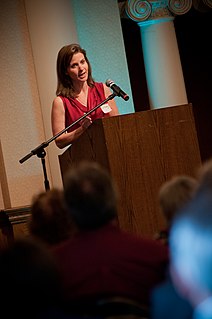A Quote by Kabir Sehgal
Albert Murray's The Omni-Americans is the most valuable non-business book because it discusses how you have to draw upon everyone's creativity. America is a mash-up of cultures and traditions, and great businesses know how to tap the strengths of all their employees, whatever their background may be.
Related Quotes
Publishing is the only industry I can think of where most of the employees spend most of their time stating with great self-assurance that they don't know how to do their jobs. "I don't know how to sell this," they explain, frowning, as though it's your fault. "I don't know how to package this. I don't know what the market is for this book. I don't know how we're going to draw attention to this." In most occupations, people try to hide their incompetence; only in publishing is it flaunted as though it were the chief qualification for the job.
If you look at America, one of the great strengths of America is its university towns and the way a lot of their businesses and a lot of their innovation and enormous economic growth have come from reducing that gap, getting those universities directly involved in start-up businesses, green field businesses, new development businesses.
Build creative cultures, and work with purpose to unleash the creativity of your team. Creativity is the most valuable natural resource in any organization, yet it is often a resource that is largely untapped. The leaders that prioritize and invest in creative cultures will be the wall street darlings of tomorrow. In fact, they're the darlings of today (Facebook, Groupon, LinkedIn, etc).
I think the knowledge about how legislation really affects small businesses is extremely valuable. If you haven't run a small business, then you don't have this kind of knowledge about how a regulation passed or taxes increased affects your bottom line. If you recognize that every new regulation takes that much more time to comply with, requires that many more employees, then it really gives you that foundational basis to make those decisions.
If America is to compete effectively in world markets, its corporate leaders must strategically position their companies in the right businesses, and then manage their workforces in the right ways. However, the nation has a shortage of business leaders who understand the importance of utilizing human capital to gain competitive advantage, let alone the know-how to do so. In the future, that shortcoming promises to be exacerbated because few business schools today teach aspiring executives how to create the kind of high-involvement organizations.
I talked with people starting up in the middle of the recession and employees, and supplies and office space were cheap. As far as companies that are already in existence, many became more creative with how they spent their money. A lot of them stopped wasting money that they didn't know they were wasting after they looked hard at their businesses. Some had to change business models because of the economy. Their market didn't exist or wasn't as big anymore.
Ninety-eight percent of all American companies have fewer than 100 employees. Over half of all Americans work for a small business. Small businesses are the backbone of our nation’s economy and we must protect this great resource.....Helping American small business is part of our movement for change and the end of politics as usual.
































